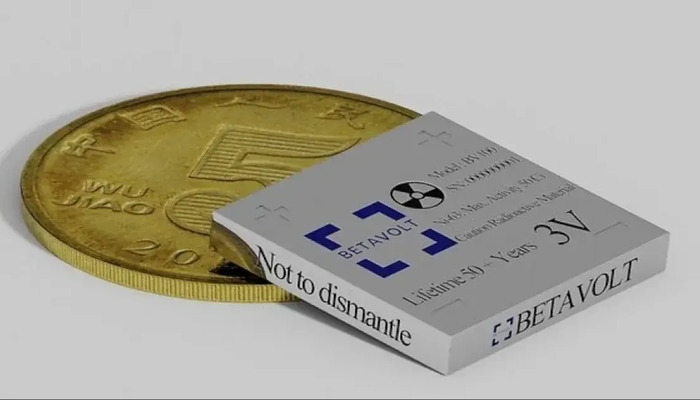
Betavolt, a Beijing-based company, has created a battery which it claims is capable of producing energy for 50 years without requiring a single charge.
The company claims the coin-sized battery is the first in the world to be powered by atomic energy, according to a report by The Independent.
The report further stated that compression of 63 isotopes into a coin-sized module is what took Betavolt to produce such a battery.
Read more: AI develops battery using 70% less lithium
This remarkable innovation is reportedly an outcome of China's 14th Five-Year Plan spanning from 2021 to 2025, which is aimed at producing miniaturisation of nuclear batteries.
Currently under the inspection stage, the battery will be produced on a massive scale and utilised to power smartphones and drones.
"Betavolt atomic energy batteries can meet the needs of long-lasting power supply in multiple scenarios, such as aerospace, AI equipment, medical equipment, microprocessors, advanced sensors, small drones and micro-robots," the company said in a press release.
"This new energy innovation will help China gain a leading edge in the new round of the AI technological revolution," it further said.
Betavolt battery dimensions
The battery dimensions are 15 x 15 x 5 mm, consisting of ultra-thin layers of nuclear isotopes and diamond semiconductors, according to information from Futurism.
Is Betavolt's nuclear battery harmful?
The firm assures that the radiation emitted is harmless to the human body, making the battery suitable for applications in medical devices like pacemakers.
The nuclear battery produces 100 microwatts of power at 3 volts, with plans to achieve a 1-watt power output by 2025.
Functionality and design
The battery utilises technology that harnesses energy from deteriorating isotopes, a concept initially investigated in the 20th century and subsequently transforms this energy into electrical power.
Featuring a layered design, the battery is designed not to catch fire or explode in response to sudden force. Betavolt also asserted the battery's ability to function in temperatures spanning from -60 degrees Celsius to 120 degrees Celsius.
"Atomic energy batteries are environmentally friendly. After the decay period, the 63 isotopes turn into a stable isotope of copper, which is non-radioactive and does not pose any threat or pollution to the environment.
















